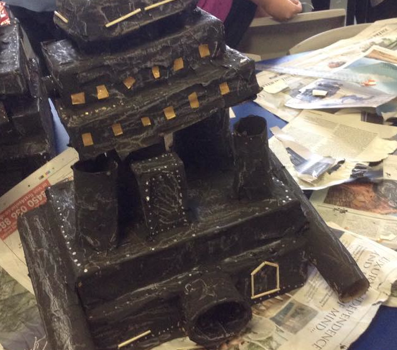

While not everyone is born a good communicator and collaborator, those skills can, and should, be taught.

Strong communication skills have long been touted as necessary for a successful and happy life. In recent years, collaboration skills have been added to the list of what employers are looking for in prospective employees. While not everyone is born a good communicator and collaborator, those skills can, and should, be taught.
I remember being put into groups for various class assignments. I remember counting ahead to see if I’d get to be with any of my friends. I also remember often carrying the brunt of responsibility for getting the work done on these “group” projects. There were never individual jobs expected, and no accountability outside of what the teacher witnessed as they walked around the classroom during the work time. And since I grew up before the internet, all of our group work had to be completed in class.
Sadly, these practices are still happening in many classrooms. If educators truly want to foster a student-driven learning environment, however, group projects need to change. In student-driven classrooms, students get to form their own teams, establish group norms, and organise their roles. There should always be individual accountability even when working towards a common goal. In the beginning, teacher may need to help students determine what a good team looks/acts like. Students may need help determining what group norms will help drive the best work. Soon they will be able to take on those responsibilities independently, which will increase their buy-in and lead to more authentic tasks.
The next thing to consider is the use of tools. Digital tools open up all sorts of communicating and collaborating possibilities within and beyond the classroom walls. These resources can open up the ability to tap into peers and experts outside of the school building, as well. Some of these tools may require a direct mini-lesson from the teacher, but many can be learned by watching the teacher use and model a range of methods and digital tools for communicating and collaborating. This will allow students the freedom to work purposefully without direct supervision, allowing the teacher to act as a facilitator throughout the process.
Some teachers worry about off-task behaviour during collaborative projects. There are ways to minimise this possibility. If students are invested in every stage of the project, they will be more likely to be engaged and on-task. Did they get to help design an authentic task from the beginning? Did they get to form their teams? Did they get to choose their role within the team? Did the teacher set up guides and benchmarks along the way to provide some organisational supports for the groups? Did the students help define the outcomes and create the assessment criteria? All of these steps promote student buy-in, and allows each student to be invested and successful.
The final part of any collaborative project should include a time of intentional and personal reflection. This can be developed in many different platforms, but Google forms seems to be a popular choice for its ease of use. This should be fairly short, so they can give more deeper thought to the process. They should reflect on their roles how well they, and their teammates, communicated and collaborated. They should also set an individual goal for future growth in this area.
According to a quick search, the dictionary defines them like this: ”Collaboration is the action of working with someone to produce or create something. Communication is the imparting or exchanging of information or news.” All people need to know how to collaborate in order to move a project forward, but without good communication, effective collaboration cannot happen.